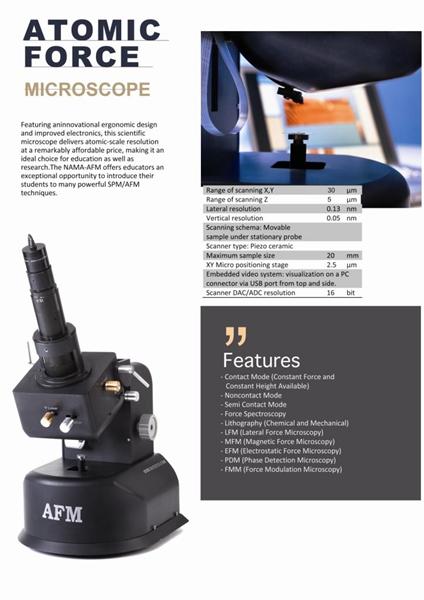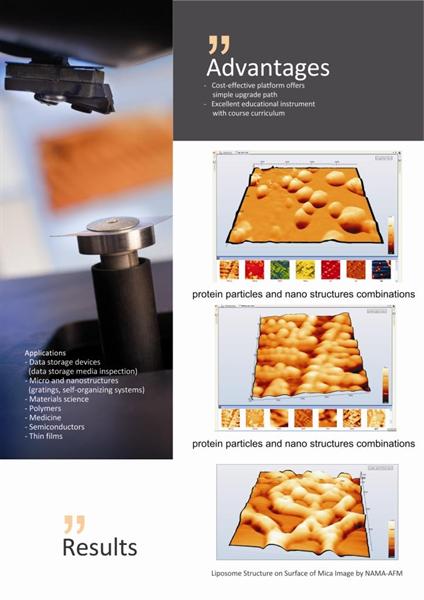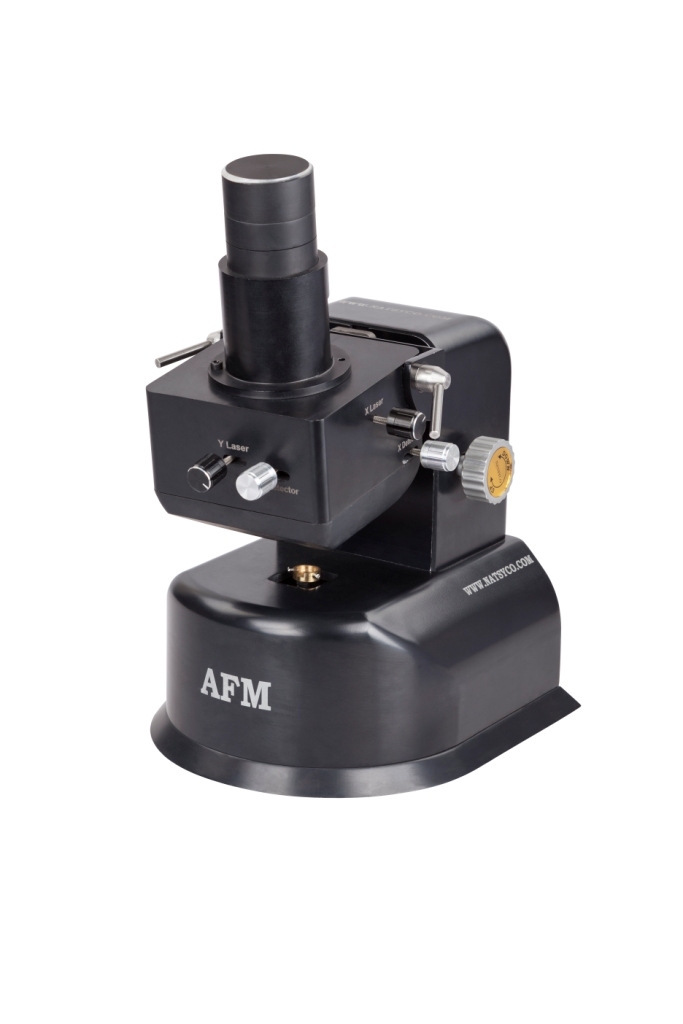AFM for Process Development / Control Applications
Atomic Force Microscopy is essential for process development and control applications in advanced technology industries including data storage, semiconductor, advanced material, polymer and photonics.
Atomic force microscopes (AFM) are extremely high-resolution scanning probe microscopes, with demonstrated resolution of fractions of a nanometer, more than 1000 times better than the optical diffraction limit.
Applications of AFM and other types of scanning probe microscopy continue to grow rapidly in number and include biological materials (e.g., studying DNA structure), polymeric materials (e.g., studying morphology, mechanical response, and thermal transitions), and semiconductors (e.g., detecting defects). In particular, AFM can be utilized to evaluate the surface quality of products such as contact lenses, optical components (mirrors, beam splitters, etc.), and semiconductor wafers after various cleaning, etching, or other manufacturing processes.
What follows are AFM Workshop examples of measurements routinely made for process development and control.
Surface Texture

Left: 4 X 4 micrometer image of processed grating, Center: Line profile of grating image, designated by red line, Right: Surface roughness parameters for the processed grating image
Polished and machined surfaces of semiconductors, glass, and metals are readily scanned with the AFM. Traditional profiling methods such as the stylus profiler do not have the vertical resolution required and optical profilers do not have the horizontal resolution. AFMs offer vertical resolution of 0.1 nm and horizontal resolution as small as a nm.
Step Height Measurements
Atomic force microscopes accurately measure the thickness of deposited films as well as the height of features on patterned wafers. Step heights of 1 nm to 100 nm are measurable with an AFM.
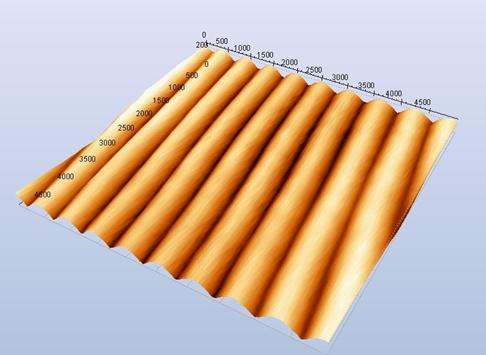
AFM image of a section of a patterned DVD.
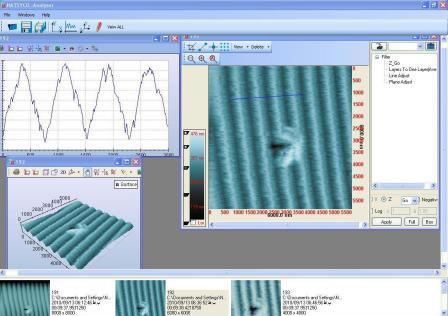
Dimensions taken from the line profile and Line profile of features on the patterned DVD
Nano-Particle Size
Atomic force microscopes are ideal for measuring the size of nanoparticle mixtures when nanoparticles are between 1 and 50 nm.
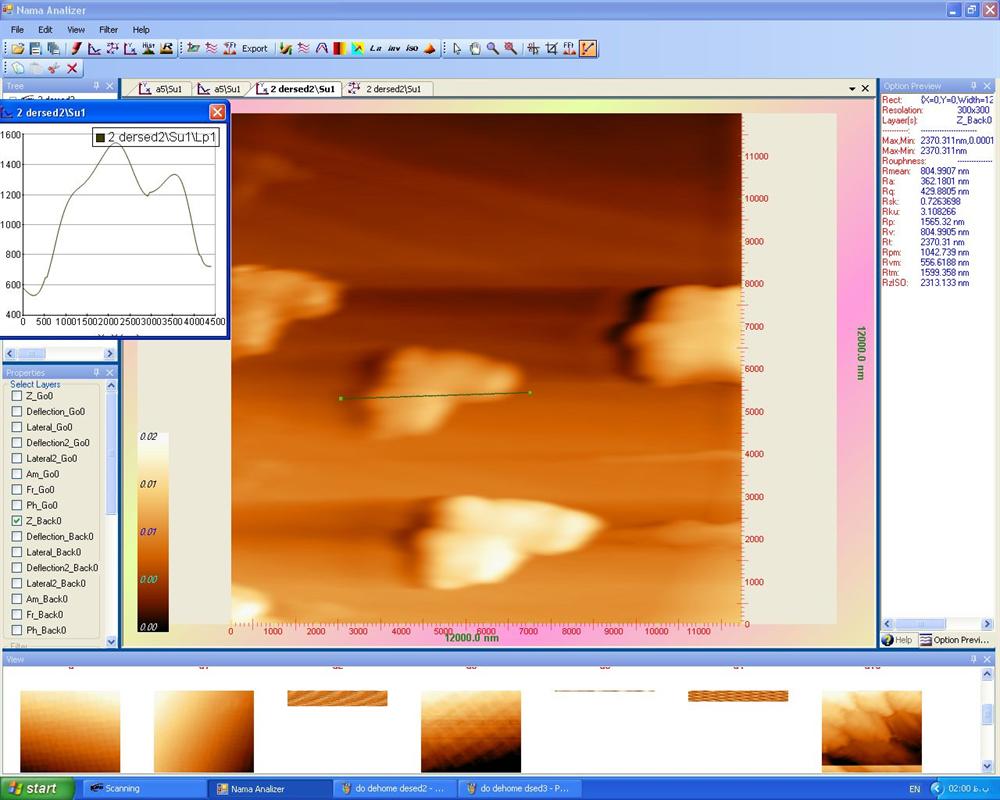
Measuring the size of nanoparticle
Images obtained using an AFM













Catalog AFM:
